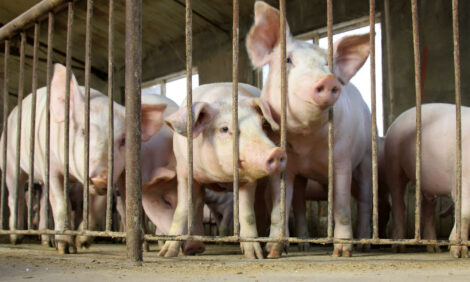



Livestock Producers Advised to Control Poison Hemlock in the Fall
US - A Purdue Extension weed specialist advises crop and livestock producers with poison hemlock in their pastures, crops or ditches to consider treating the weed in the fall.Poison hemlock is a biennial weed that is toxic to both livestock and humans, if enough is consumed. It can be identified by its finely divided, toothed leaves and white flowers. Its stems are hairless, have purple spots or blotches and can grow to 2-7 feet in height.

"The weed seems to be spreading, becoming a more common occurrence in pastures, agronomic crops, fencerows and roadsides," Bill Johnson said.
"It can be difficult to control in the spring. It's easier to control in the fall because it's more sensitive to herbicides."
The plant growth and appearance is more visible in the spring, when the plants "bolt" or elongate rapidly and the white flowers bloom, so that's when most people become concerned with it. But Dr Johnson said there is active rosette formation of the weed in the fall.
"Growers should really think about fall-applied herbicide treatments whether they're treating their pastures or fields going to corn or soybeans next year," he said.
"They should be treating them in the fall to control poison hemlock."
For control in grass pastures, he recommended using one of a couple of herbicides that contain triclopyr as an active ingredient.
The good news for livestock producers is that while poison hemlock is considered to be most toxic in the fall, livestock usually won't eat the plant if there are other options in the pasture.
"Cows won't usually eat poison hemlock because this weed doesn't taste as good as the more desirable pasture species," Dr Johnson said. "But if the pasture is limited in desirable forages, then there may be a situation where the cows will get hungry enough to eat the plant."
In corn or soybeans where poison hemlock is a nuisance, growers can try an aggressive tillage program to disrupt it. If a herbicide is needed for control in agronomic crops, Dr Johnson recommended applying products containing dicamba.
Farmers should be aware that some herbicides can damage legumes or other desired vegetation, so they need to double-check labels before applying them.






